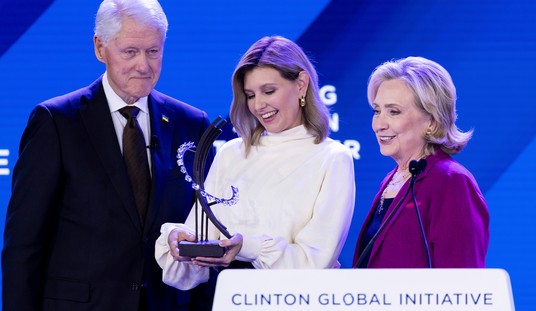Interesting, not because it’s a surprise that Ron Paul’s son feels this way — remember this? — but because this is a subject that every Republican in the field, Rand included, would probably prefer to avoid during the primaries.
Or am I wrong about that? Could this be a smart play for Paul, especially given how it’ll make Jeb Bush squirm?
Sen. Rand Paul, a Republican candidate for president, said today in front of an audience of Orthodox Jews that it was a “mistake” to topple Saddam Hussein in Iraq and later wage war in Libya.
“All the way back to the Iraq War, I think it was a mistake to topple [Saddam] Hussein. Hussein was the bulwark against Iran. The Sunnis didn’t like the Shiites, now Iraq is a vassal state for Iran,” Mr. Paul, the libertarian-leaning Kentucky senator, said. “I’m worried [Iran] is twice as strong as it was before the Iraq War.”…
“Each time we topple a secular dictator, I think we wind up with chaos and radical Islam seems to rise,” he said. He argued that any attempt to dethrone Syrian dictator Bashar al-Assad would lead to the Islamic State, also known as ISIS, being “in charge of Damascus.”
I’m … not sure why he wishes there was a bulwark against Iran when he claimed in 2007 that even an Iran with nuclear weapons would be no threat to the United States — or to Israel. Even so, this is clever spin in how it downplays traditional libertarian blood-and-treasure concerns about interventionism to frame the anti-war position on Iraq as essentially a form of hawkishness. If you really want to stick it to the bastards in Tehran, Rand’s suggesting, what would be better than having the Sunni menace in Baghdad still around, threatening to start another ruinous Iraq/Iran war? That argument may have some appeal with cautious Republican hawks in the primary, the type of voter who views the Iraq war dimly but also worries that Rand as C-in-C won’t be willing to play hardball with formidable enemies like Iran. Here’s how hard I’m willing to play hardball, Rand’s saying: I wish crazy-ass Saddam Hussein was still in power to terrorize the mullahs. Marco Rubio may be willing to bomb Iran’s enrichment facilities but Paul might be willing to have Saddam send the entire Iraqi army across the border. Top that, hawks.
As I say, though, this issue might not be safe for anyone in the primaries. The polls among Republicans on the Iraq war are conflicted. Some, like this CBS/NYT poll from June 2014, show extreme buyer’s remorse:

Others, like this one from WaPo/ABC taken in March 2013, show Republican support pretty durable:

Still others, like this one from USA Today/Pew in January 2014, contain mixed messages:
The biggest shift in attitudes toward the Iraq War came among Republicans and those who lean to the GOP. In 2011, 65% of them said the war had succeeded; now just 38% do. A double-digit gap between Republican and Democrat views in 2011 has now been largely erased.
There is a difference in partisan attitudes, though. More Republicans say it was right to use military force in Iraq (52%) than those who say the war had succeeded (38%). But more Democrats say the war succeeded (36%) than say it was the right decision to go to war (28%).
Those results aren’t necessarily inconsistent. It could be that GOPers felt reasonably good about the war in March 2013 and then changed their minds a year later, blaming U.S. intervention for creating the conditions that ultimately produced ISIS. If that’s the case, though, how to explain the trend observed in multiple polls over the past 18 months showing Republicans turning more hawkish, not less? If they really are feeling regrets about Iraq, it’s not affecting their willingness to bomb new enemies to smithereens.
That’s the gamble for Rand. On the one hand, a guy who’s more dovish than traditional Republican presidential candidates should want to mention Iraq at every opportunity, to keep the parties’ hawks constantly on the defensive. Even a stalwart interventionist like Rubio will think twice about defending the war too robustly knowing how poisonously it polls among independents. On the other hand, because the party’s view of intervention is hard to gauge right now, and because Rand will already be facing a bombardment of attacks about him being a peacenik and a weakling, coming out strong against Iraq might convince Republican primary voters that he really is as anti-war as his critics say. More than that, given how much political capital the party as a whole has invested in Iraq, watching Paul join Democrats in badmouthing it might irritate righties from a tribal standpoint. George W. Bush is still well liked within the GOP; will the voters who like him tolerate Rand siding with the left about Bush’s legacy in the middle of a GOP primary? See why I’m thinking the entire field would prefer to avoid this issue?
Exit question: If Rand is all about using sectarian counterweights to contain Iran, why does he support destroying ISIS? Seems like having Sunni fanatics in charge in Baghdad would be just what the doctor ordered to keep Tehran preoccupied.








Join the conversation as a VIP Member